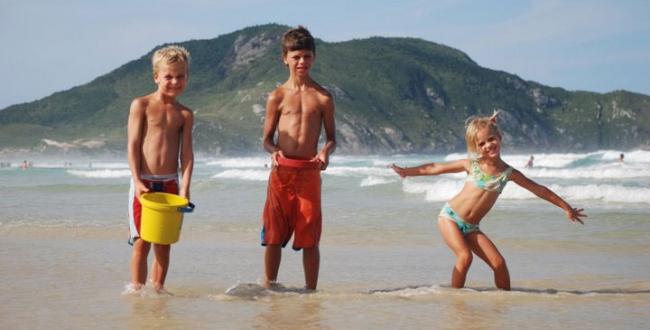
“Writing [in the first person] was a painful process since it exposed me and made me feel vulnerable. All my feelings became so much more real. The rewriting caused me a lot of tears.”
MARLEEN RECHSTEINER is the author of Leven Zonder Agenda (“Life Without Agenda”; Artemis & Co, 2009), which explores the challenges of caring for a special-needs child. Her book combines memoir, research, interviews with other parents, and advice.
Marleen writes from personal experience: her 15-year-old son Emile has Williams syndrome — also known as Williams-Beuren syndrome — a rare neurodevelopmental disorder characterized by an “elfin” facial appearance, developmental delays, learning disabilities, and cardiovascular disease, but also strong language skills, high sociability, and often, an affinity for music. Estimates vary, but according to the Williams Syndrome Association in the United States the condition affects about 1 in 10,000 people worldwide.
I met Marleen in Santiago, Chile, where she was living at the time (her family has since returned to the Netherlands). She participated in a two-day workshop I led on memoir writing following my teaching at Los Parronales Writers’ Retreat. I spoke to her recently about her published book, currently available only in Dutch.
* * *
Tell us a little about Emile, and what prompted you to write Leven Zonder Agenda.
Emile was nine months old when he was diagnosed with Williams-Beuren syndrome, a rare genetic disorder. Having to cope with the news that my son would not only never go to university but maybe not even be able to write a postcard or buy me a present for Mother’s Day was a difficult journey. When he was born I was 30 years old and a successful career woman, and I had always orchestrated things as I wanted them to be. Now I had lost control of my life. Desperate, I searched for books to guide me through this difficult phase, and to understand and accept it.
Most books I could find were very technical, and dealt with one specific medical condition only or focused on one child in particular. I was looking for books written from the perspective of a parent like me, but those I found were often about the specific situation of their child and I generally lost interest by the second chapter. As a marketer, I figured there would be a demand for a book that described the emotional process parents in general go through in coping with a special-needs child. That’s when the idea was born, but it was ten years before the book was published.
Why did you believe other parents would find such a book helpful?
During the meetings in waiting rooms with other parents of other special-needs children, I learned that they rents were going through similar processes. I was not the only parent in the world who ever felt guilty because I sometimes thought, “I wish he had never been born.” Later I interviewed a range of parents (including those whose children suffered from other rare syndromes, as well as Down syndrome, autism, and ADHD).
From those interviews I mapped out the different themes for my book. Topics include the search for or fear of the diagnosis; the sometimes hurtful reactions from others; experiences in the medical circuit; the search for a suitable school; the pressure of combining work and care; relationships in the family and tensions in marriage. All examples of daily family situations.
How did you hope that readers would benefit from the book?
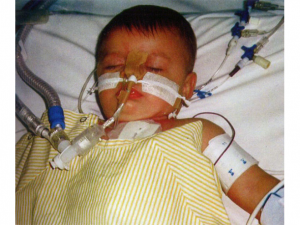 When you’re told that your child suffers from a disorder, your life is turned upside down. Nobody has ever taught you how to deal with such a major upheaval. By involving the reader emotionally in my search for ways to help Emile, I hoped to set the reader thinking: How can I best respond to comments from outsiders? How can I make time for myself? How can I help my child improve? Why are my partner’s emotions so different?
When you’re told that your child suffers from a disorder, your life is turned upside down. Nobody has ever taught you how to deal with such a major upheaval. By involving the reader emotionally in my search for ways to help Emile, I hoped to set the reader thinking: How can I best respond to comments from outsiders? How can I make time for myself? How can I help my child improve? Why are my partner’s emotions so different?
What was life like when Emile was young?
We had difficult early years when Emile cried a lot, ate poorly, and slept very little. When he was nine months he had surgery on his heart, but thankfully that is fine now. He went to a small school with other children with special needs, where his material was modified. He read, wrote, and conversed quite well. Because we lived in Chile, he learned Spanish, and he had early education in English, so he speaks three languages.
The biggest problems were his lack of concentration and poor fine-motor skills. Tying shoelaces caused him much trouble. On the other hand, he was good at sports: tennis, cycling, swimming, and even skiing! He liked to make up his own songs and dress up as a DJ, though he is not as musical as some other Williams syndrome children.
How is he doing now?
For over a year, Emile has been living from Monday to Friday at a boarding school for special-needs children, about one and a half hours from our home. He comes home on the weekends. When I drop him off and see all the wheelchairs and children who need them, it is still a shock to me that he is one of them. I had thought this boarding school was a different world, one I would never enter. But he is very happy there, which has made me realize it was me who was having a problem with the school and not him.
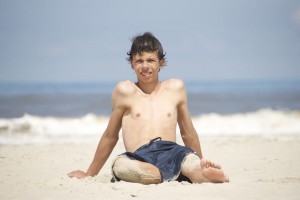 One of his problems is poor concentration. Apart from watching a screen (computer or TV), he is not able to focus on an activity for more than five minutes. We let him walk with the dog around the block, but there is always a risk he will get distracted by music or other people and get lost. He also has poor organizational skills, and he lacks the ability to follow through on tasks. He loves music, for example, and we offered him various classes (drums, etc.) but he never practised, so teachers gave up on him. Now he wants to be a DJ and has fantasies about this, talks about it the whole day (it’s almost an obsession), but although we bought him some equipment, he never uses it.
One of his problems is poor concentration. Apart from watching a screen (computer or TV), he is not able to focus on an activity for more than five minutes. We let him walk with the dog around the block, but there is always a risk he will get distracted by music or other people and get lost. He also has poor organizational skills, and he lacks the ability to follow through on tasks. He loves music, for example, and we offered him various classes (drums, etc.) but he never practised, so teachers gave up on him. Now he wants to be a DJ and has fantasies about this, talks about it the whole day (it’s almost an obsession), but although we bought him some equipment, he never uses it.
I don’t know whether he is better or worse now than we had expected him to be. We have learned not to think too much in terms of the future and to live day by day.
You and your family moved to Chile for four years and there you began writing. With Emile and two other children to care for, how did you make the time?
We had moved there for my husband’s work; he was general manager at a pharmaceutical company. Since I did not work there myself, I had the time — and peace in my head — to devote myself to the writing process according to a very strict discipline. In the mornings I brought the kids to school, then went to the gym, and returned home where I worked in my writing room from 10 a.m. to 1 p.m.
My routine took on an almost religious form: I had to wear my favourite sweater and my tea had to be accompanied by Sultana cookies! If I didn’t write for more than a week, I lost a lot of time trying to get back into a routine.
Sometimes I did some editing at night, but the afternoons I spent with the three children. Three to four productive writing hours was the maximum; by then I was exhausted from refreshing my memory, structuring ideas, and formulating sentences.
How did you go about finding a publisher?
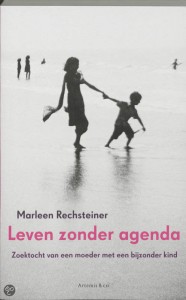 I did good research, through the Internet and my writing network. Two publishers in Amsterdam stood out, and I contacted them while visiting the Netherlands from Chile. This was at an early stage in the writing process, but I explained to them that as a marketer I thought there would be an audience for such a book and also that I was willing to help promote the book using my PR experience. I showed that I was committed and able to deliver, but I also asked for help and the chance to make my dream come true.
I did good research, through the Internet and my writing network. Two publishers in Amsterdam stood out, and I contacted them while visiting the Netherlands from Chile. This was at an early stage in the writing process, but I explained to them that as a marketer I thought there would be an audience for such a book and also that I was willing to help promote the book using my PR experience. I showed that I was committed and able to deliver, but I also asked for help and the chance to make my dream come true.
Later on, the publisher told me she liked the subject (she had affinity with it herself) and that she liked me as a person. Once my contract was signed, the writing became easier because I had someone in mind to write for and make my deadlines! It really helps when you are working with someone for whom you want to do your best. From the moment the contract with the publisher was signed, I knew there was no way back, and the adrenaline did the rest.
What was your greatest writing challenge?
My first writing was very factual and written in the third person. Then I realized that my personal experiences would have more impact, and therefore be more helpful to other parents, so I shifted to the first person. Writing like this was a painful process since it exposed me and made me feel vulnerable. All my feelings became so much more real. The rewriting caused me a lot of tears.
Have you any advice for writers embarking on similar projects?
Gather soulmates around you to comment on drafts or just to talk to about the process you go through. Also, taking a writing course or a workshop, like the memoir workshops I took with you in Chile, can help. Writing is a rewarding but solitary job.
What have you found most rewarding about being published?
The e-mails I got from other parents who were thankful. The fact that they recognized so many experiences about which I wrote assured me that it was worthwhile having invested so much time in this immense project.
Recently I had a dinner at a professional network and one of the ladies at my table remarked that she recognized me from an interview on TV about my book! This made me realize that it is important not only to get the book published, but also to pay attention to the promotion of it.
Have you got another book in progress?
I haven’t done any serious writing since I published my book, although I still give creative writing workshops and once in a while I write a column. Having Leven Zonder Agenda published has given me the confidence that I can write, but in this phase of my life my priority is to reintegrate into the workplace after nine years of not working outside the home. I am sure that later on I will devote myself to writing again.
On a personal level, what have you gained from writing Leven Zonder Agenda?
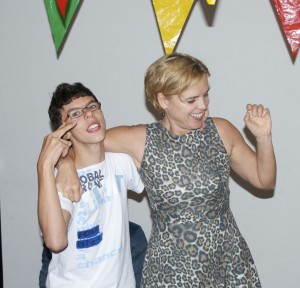 I thought that I had accepted the disability of Emile. But re-experiencing those intense feelings from the past and trusting them to paper made me realize that I had not yet accepted him as he is. Writing worked like a therapy for me and for my relationship. The discussions my husband and I had about some of the writing meant that we spoke about emotions in a way that we had never done before.
I thought that I had accepted the disability of Emile. But re-experiencing those intense feelings from the past and trusting them to paper made me realize that I had not yet accepted him as he is. Writing worked like a therapy for me and for my relationship. The discussions my husband and I had about some of the writing meant that we spoke about emotions in a way that we had never done before.
I still set goals, but in the short term. And we celebrate when Emile has reaches a milestone. But there’s more. Through Emile I have developed the courage to “sail my own race.” I am now much more apt to make decisions that are closer to my own feelings, no matter what the outside world thinks.
Writing about Emile has been a journey toward acceptance. Do you feel you’ve arrived?
I think in the future there will continue to be times when having a disabled child will be challenging. Emile at the moment needs friendships, but he has difficulty getting people to bond with him. His behaviour is too volatile, too self-centred. The biggest difference now is that I have come to understand why my husband or I respond to or otherwise deal with him, and we are able to talk about it. That gives me confidence that we can face the future — whatever it will bring.
The following book trailer for Leven Zonder Agenda is in Dutch. Mostly images rather than language, it’s beautifully done and inspiring:
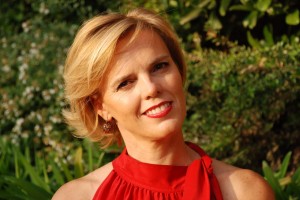 MARLEEN RECHSTEINER is a marketing and communications manager for an international management consultancy in the Netherlands. She graduated from the University of Amsterdam with a degree in European Studies, majoring in Public Relations. She spent nine years living abroad in the United States, Belgium, the U.K., Chile, and Venezuela, before returning to the Netherlands two years ago. Marleen, her husband, and their three children make their home in Amersfoort.
MARLEEN RECHSTEINER is a marketing and communications manager for an international management consultancy in the Netherlands. She graduated from the University of Amsterdam with a degree in European Studies, majoring in Public Relations. She spent nine years living abroad in the United States, Belgium, the U.K., Chile, and Venezuela, before returning to the Netherlands two years ago. Marleen, her husband, and their three children make their home in Amersfoort.
For more in English about Williams Syndrome, visit the Williams Syndrome Association, or the Canadian Association for Williams Syndrome.